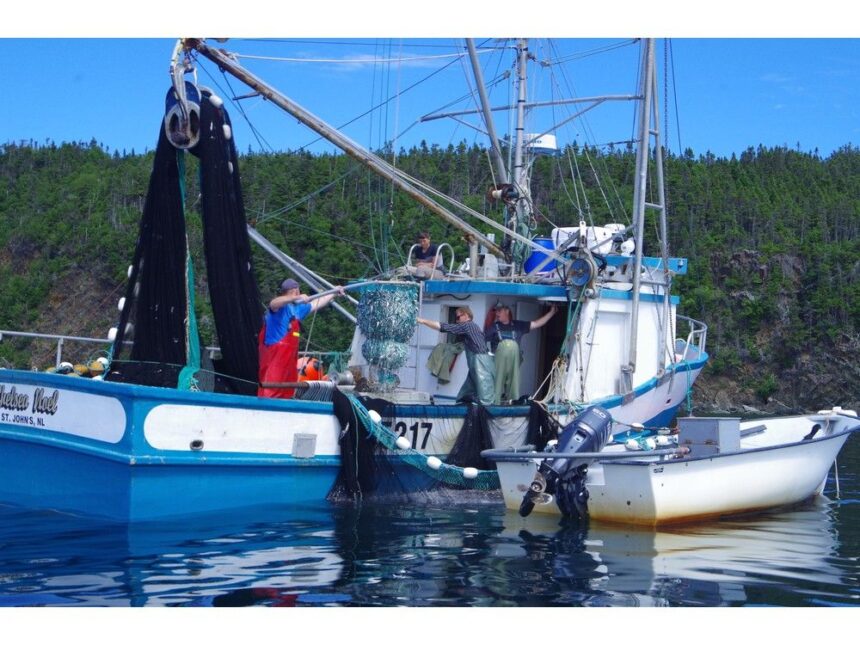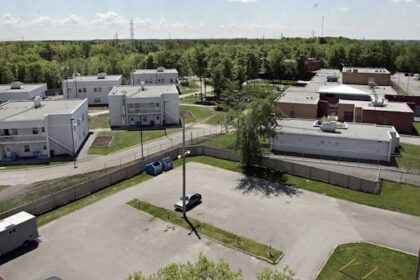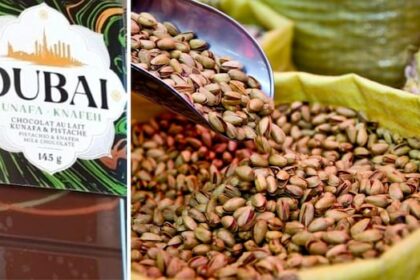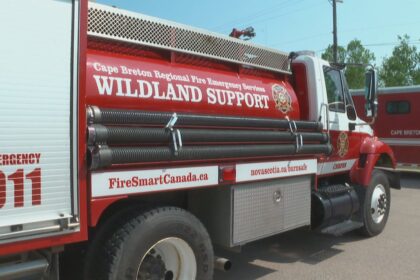FFAW-Unifor wants a commitment from the next provincial government to address its concerns with processors, labour relations and a proposed conservation planAuthor of the article:By Gary Kean • The TelegramPublished Oct 10, 20256 minute readWith election day on Tuesday, Oct. 14 drawing nearer, those involved in the fishing industry want to know where candidates and their parties stand on a variety of fishery-related issues. Photo by The Telegram fileArticle contentWhatever party forms the next provincial government after election day on Tuesday, Oct. 14, Dwan Street hopes they can follow through with some help for the fishery in Newfoundland and Labrador. THIS CONTENT IS RESERVED FOR SUBSCRIBERS ONLY.Subscribe now to access this story and more:Unlimited access to the website and appExclusive access to premium content, newsletters and podcastsFull access to the e-Edition app, an electronic replica of the print edition that you can share, download and comment onEnjoy insights and behind-the-scenes analysis from our award-winning journalistsSupport local journalists and the next generation of journalistsSUBSCRIBE TO UNLOCK MORE ARTICLES.Subscribe or sign in to your account to continue your reading experience.Unlimited access to the website and appExclusive access to premium content, newsletters and podcastsFull access to the e-Edition app, an electronic replica of the print edition that you can share, download and comment onEnjoy insights and behind-the-scenes analysis from our award-winning journalistsSupport local journalists and the next generation of journalistsRegister to unlock more articles.Create an account or sign in to continue your reading experience.Access additional stories every monthShare your thoughts and join the conversation in our commenting communityGet email updates from your favourite authorsSign In or Create an AccountorArticle contentTopping the election wish list for the president of FFAW-Unifor — the union that represents the province’s fish harvesters and plant workers — is for government to listen to the union’s concerns about how some fish companies operate. Article contentArticle contentArticle contentFor years, the union has butted heads with the Association of Seafood Producers, the entity that represents some, though not all, fish processing companies in the province.Article contentOften, the spats are over negotiating fair prices for the various species that make up the fishery. But sometimes, the conflicts escalate even after the sides have agreed to a minimum price or one has been decided on by the province’s Standing Fish Price Setting Panel through the final offer selection process. Article contentFrustrations and tension Article contentThe 2025 season has been marred by such complaints, with FFAW-Unifor alleging price fixing and anti-competitive behaviour by the ASP members and other processors. Article contentThe tensions came to a head in September when union members converged in Grand Bank to prevent a fishing vessel from the French islands of St. Pierre et Miquelon from docking and unloading its catch of sea cucumber. Article contentArticle contentThe union believed a company was planning to buy the catch for cheaper than what had been agreed to by the union and the ASP. Article content Protesting fish harvesters kept an overnight vigil in Fortune after preventing the French fishing boat Marcel Angie III from offloading its catch of sea cucumber earlier in the day on Monday, Sept. 8, 20205. Jamie Baker/FFAW Photo by Jamie Baker/FFAW-UniforArticle contentDuring that incident, the protest transferred to nearby Fortune, when the vessel headed after being turned away from Grand Bank. Article contentThe ship eventually left without landing its load of sea cucumber. Article contentThroughout the protest, the union was urging the government to do something about the situation, which the union considered the latest in a series of questionable practices that were harming the livelihoods of harvesters and workers. Article content“We haven’t really gotten a response from government that’s been favorable and how they’re going to address that,” Street said in a recent interview with The Telegram. Article content“It’s unfortunate that, after the demonstration in Grand Bank, it kind of came to a head and it was an opportunity for government to really step in and act and start holding these companies accountable, but then, of course, the writ gets dropped.” Article content FFAW-Unifor president Dwan Street. Photo by Keith Gosse/The Telegram file photoArticle content‘Government’s really not doing its job’ Article contentSince the provincial election was called on Sept. 15, the government has been in caretaker mode with the powers and responsibilities of government departments restricted until the new government takes power. Article contentThat means the union has to switch gears to trying to determine the stance of candidates scrounging for support or trying to convince them to pick up the fisheries union’s causes. Article content“We’re looking for a commitment, whether it’s conditions of a license on the fishery side, whether it’s something labour relations with (the Fishing Industry Collective Bargaining Act) that’s going to hold these companies accountable,” said Street. Article content“A processing license is a privilege and, if you’re going to behave in ways that are contradictory to the benefits of that license going into our communities and benefiting our members, there has to be some accountability.” Article contentArticle contentOn the labour relations side of things, Street said the union would like to see government act in a timelier fashion when dealing with issues of arbitration and grievances. Article content“We have arbitrations that we’re still waiting on dates from three years ago,” she explained. “Stuff like that is just hanging and government’s really not doing its job when it comes to making sure everything is done in a timely manner. Article content“There’s a lot, really, whether it’s in the department of fisheries or the department of labour relations that we think can be cleaned up and tightened up. We’re going to be looking for all parties’ commitment in doing that.” Article content Elaine Ingram, chief of the Burgeo First Nation, explains the proposed national marine conservation area boundaries and the importance of the fjords along the south coast of Newfoundland, particularly White Bear Bay, to her people. CONTRIBUTEDArticle contentConservation threat Article contentAnother issue the union will be considering is whether or not parties or individual candidates support the marine conservation area being proposed along the south coast of Newfoundland. Article contentArticle contentA memorandum of understanding has been signed by the Canadian and Newfoundland and Labrador governments, along with the Town of Burgeo, Miawpukek First Nation and Qalipu First Nation to assess the feasibility of creating the South Coast Fjords National Marine Conservation Area and re-designating Sandbanks Provincial Park as a national park in the Burgeo region. Article content“This initiative is focused on protecting biodiversity, reducing ecological loss, and fostering reconciliation through the integration of Indigenous knowledge and values,” states the website of the Newfoundland and Labrador chapter of the Canadian Parks and Wilderness Society, which has been advocating to protect this region since the provincial chapter was founded in 2003. Article content“A South Coast Fjords (national marine conservation area), alongside the potential national park, promises significant ecological, economic, and cultural benefits for both coastal and Indigenous communities.”Article contentFFAW-Unifor has joined others, including the Newfoundland Aquaculture Industry Association — which wants to see fish farming expand along the south coast — in voicing their concerns that the conservation area will restrict fishing activities in the region, to the obvious detriment of the communities that economically depend on the fishery. Article contentThe union wants the provincial government to pull its support for the project. Article content“The government has been saying they’re going to do that and still haven’t done it,” said Street. Article content Fishing boats sit in Catalina Harbour, Newfoundland. The fishing industry brings millions of dollars into the provincial economy. In 2022, the snow crab fishery alone was worth over $1 billion in catches and export value. Photo by Telegram staff /The TelegramArticle contentAsk the hard questions Article contentThe union has been advising its members to ask tough and meaningful questions of the candidates on the campaign trails who want their votes and insist on firm responses. Article content“Really push them and don’t take ‘no’ for an answer and don’t take vagueness for an answer,” Street said of how she hopes union members will handle candidates. “We did make some progress when (former provincial Fisheries, Forestry and Agriculture) Minister Gerry Byrne was there and we were happy with that, but it seems like that momentum kind of stalled.” Article contentArticle contentShe doesn’t know if the change that’s needed is a new approach from the Liberal party if they retain power or a new party forming government with a fresh look at the fishery’s issues. Article contentStreet believes the federal Liberal party losing some of its ridings in Newfoundland and Labrador in last spring’s federal election had a lot to do with the disgruntlement of rural Newfoundland and Labrador, including those whose livelihoods are tied to the fishery. She said that should serve as a tale for those wanting the support from rural areas in the upcoming provincial vote too. Article content“When the fishery is not feeling supported, then folks are going to speak out because, even if you’re not directly involved in the industry in rural Newfoundland, Labrador, everybody sees the spin-offs and sees that it is the fishery that’s the driver,” said Street. “I’m hoping that folks are going to ask the hard questions at the door and candidates are going to be engaged and understand the importance.” Article contentArticle content Crab pots ready for the fishing season. Photo by SaltWire Network /SaltWire NetworkArticle contentQuestionnaire Article contentThe union recently conducted a questionnaire of the three provincial parties vying to form the next government. Article contentThe results, published on the union’s website in a report card format, showed relatively strong support from all three on the various issues they were asked about. Article contentBoth the Liberals and New Democrats received eight positive checkmarks out of 10, while the Progressive Conservatives earned seven positive scores out of 10. Article contentOn the question of pulling support for the marine conservation area proposed for the south coast of Newfoundland, only the PCs said they would not support the plan. Both the Liberals and NDP indicated they would not firmly commit to removing the province’s support. Article content“While we appreciate the responses submitted, we must note that not all commitments were clearly confirmed or denied,” stated the union’s analysis of the responses. Article content“Despite the format of our questionnaire — structured around direct yes-or-no questions — a number of replies from all major parties included vague or non-committal language, lacked definitive timelines, or failed to provide concrete action plans.” Article contentThe Telegram has asked the Association of Seafood Producers for an interview about its perspective on the fishery as a provincial election issue, but no interview had been granted as of publication. Article content
Casting for ballots: Union hopes next NL government will tackle fishery issues











